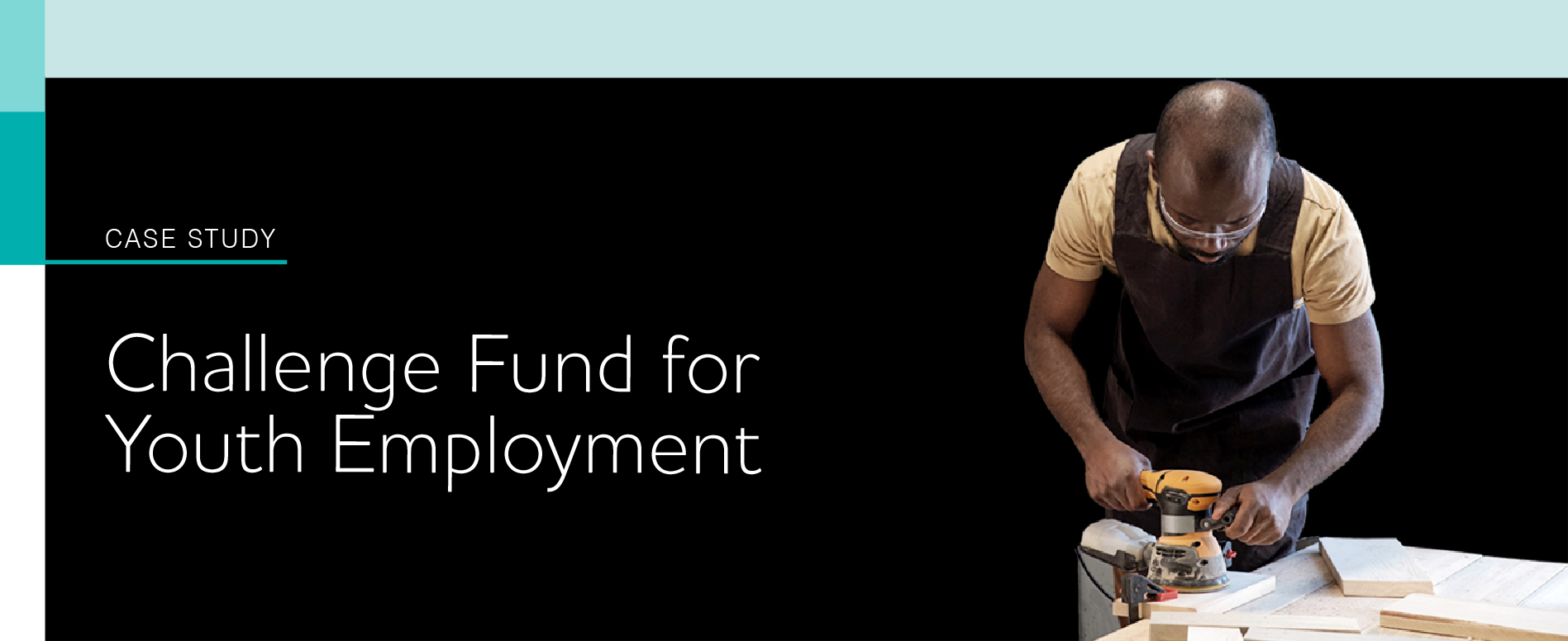Case Studies

61,677
People Reached
41,084
Individuals Reporting Increased Incomes
62
Policies Developed or Strengthened
62
Organisation Supported
€U30,628,000
Investment Catalysed
How can we connect youth to economic opportunities at scale while supporting organisations to grow? The Challenge Fund for Youth Employment (CFYE), a seven-year global project funded by the Netherlands Ministry of Foreign Affairs, offers a compelling case study of how we can create jobs and empower youth with the skills they need to seize them.
Through investment in projects and partners, CFYE facilities innovative ideas for improving work prospects so that youth, especially young women, can enter jobs that reflect their aspirations and skills.
Working across the Middle East, North Africa, Sahel & West Africa, and Horn of Africa regions, CFYE aims to give 230,000 young women and men in 11 focus countries access to new or better employment, including wage or salary jobs and self-employment.
The program does this by creating new jobs, matching young people to existing opportunities, and improving the quality of their current jobs, all to boost the income and livelihoods of youth, and set them up for future success. So far, CFYE has generated 56,829 jobs for young people, 50% of which were for young women.
So far, CFYE has created 27,464 new jobs for youth, 55% of which were for young women. Additionally, 2101 young people have been matched to existing opportunities, and 27,264 young people have experienced an improvement in their current jobs as a result of CFYE’s interventions.
For James, support from CFYE enabled him to scale up an innovative waste management system for his community in Kenya, while increasing and stabilising his income. Annually, 22 million metric tonnes of plastic waste are discarded in urban areas in Africa, with waste volumes only growing. James recognised that one of the major challenges specific to Kenya’s waste and recycling sector is that urban waste is collected by informal waste pickers. These workers face ever-changing, non-transparent prices, resulting in low and unstable incomes.
To address this, James collaborated with Mr. Green Africa, a CFYE partner business. The business’ technology-driven plastics collection model enables waste collection at the source, integrating informal waste workers, micro-entrepreneurs, and consumers into a formal value chain. Their business model of inclusive sourcing of plastic waste, local manufacturing, and high-quality products creates long-term, decent and attractive jobs for young women and young men like James, while significantly reducing environmental pollution.
With the support of CFYE through Mr Green Africa, James was encouraged to amplify the impact of his work and started creating short videos and documentaries to raise awareness about the importance of waste management, encouraging other youth to find stable income in jobs that also support their communities.
James’ story highlights how the CFYE is not only creating job opportunities but also fostering a culture of leadership and engagement among youth.
Similarly, in Kenya, CFYE supports Cyber Shujaa, a youth-focused program that aims to address gaps in the ICT and Cybersecurity sectors by providing targeted mentoring and training to prepare young professionals for careers in these fields.
Keith, a young ICT professional, entered the Cyber Shujaa workforce as one of its first trainees under CFYE’s support. With the training and mentorship provided by Cyber Shujaa, Keith progressed quickly, and was soon offered a full-time position in the company to train and upskill future entrants.
Witnessing the growth and development of those he had trained is Keith’s favourite part of his new job.
For James, Keith, and countless other youths across the Middle East and Africa, CFYE has offered well-paid, meaningful work that not only increases individual incomes, but also empowers youth to catalyse positive change in their communities.
